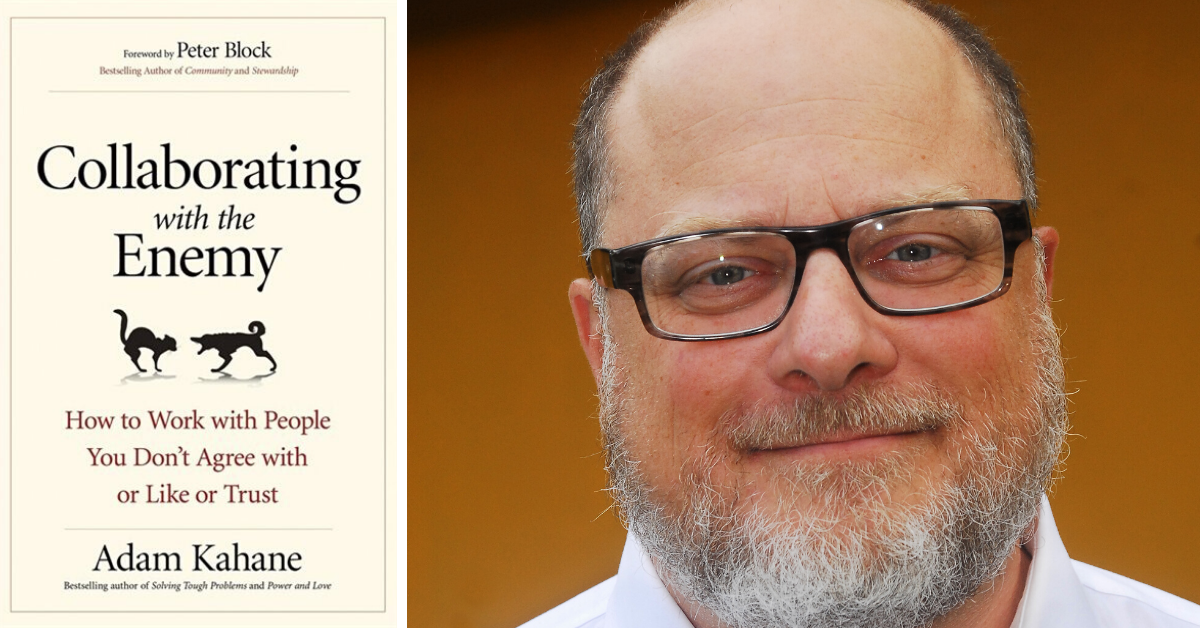Embracing Uncertain Relationships in a Time of Transformation
by Angus MacCaull
The insurance industry is digitizing rapidly. With so many start ups and corporate venture plays, it can be hard to know who to trust.
Even within our own company at AA Munro, the growing volume of new clients and coworkers can make us all feel a little distant at times. What do we do?
Adam Kahane offers guidance in a recent book. I read it on a Sunday afternoon in February thanks to my partner Annie’s recommendation.

Conventional change management advice suggests gathering a group of experts to figure out the best policies and a path forward. Then the authorities are supposed to tell everyone else what to do.
But in times of transformation, there might not be any widely-accepted experts or authorities! Here are three principles for what Kahane calls “stretch collaboration” to use when working without trust.
#1 Accept The Validity Of Opposing Viewpoints
This is so hard. Dialogue is a good start, but you won’t get to meaningful collaboration without trust unless you accept the validity of viewpoints that you don’t trust. There are two keys to doing this. The first is to recognize that there is more than one whole. What does that mean? You might not like the style of your neighbor’s house—but you accept that their house is a house. And, like a house, each opposing viewpoint has its own needs for power and for love.
#2 Experiment To Build Something New Together
The past is often a mess. An active period of transformation is definitely a mess! You can’t always fix the fact that you don’t trust someone at the table, but you can try to influence the future together. In doing so you will have to give up ideas of control as well as the desire to see things play out exactly as you envisioned. You have to experiment. You have to listen for possibility, for something new.
#3 Be Present To What Happens And To Yourself
When you really commit to paying attention, you begin to see the part you’re playing. As my friend Cara told me once, she used to think every house she lived in was haunted—until she realized she was the person present every time she had that feeling. “It’s not paranormal,” she said. “It’s Cara-normal.” The good news is: when you recognize you’re playing a part in a conflict or transformation or whatever is creating a lack of trust, you can change it. Some people say that if you’re not part of the solution, you’re part of the problem. But another way of looking at it is: you have to be part of the problem in order to be part of the solution. Otherwise you’re just along for the ride—or until the ride ends.




Leave a Reply